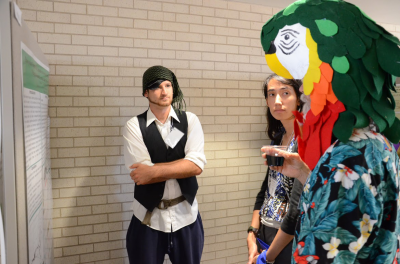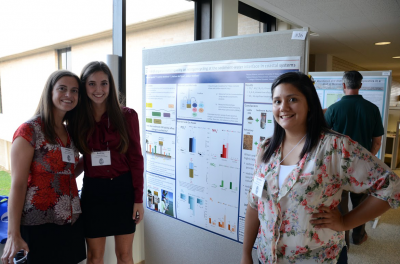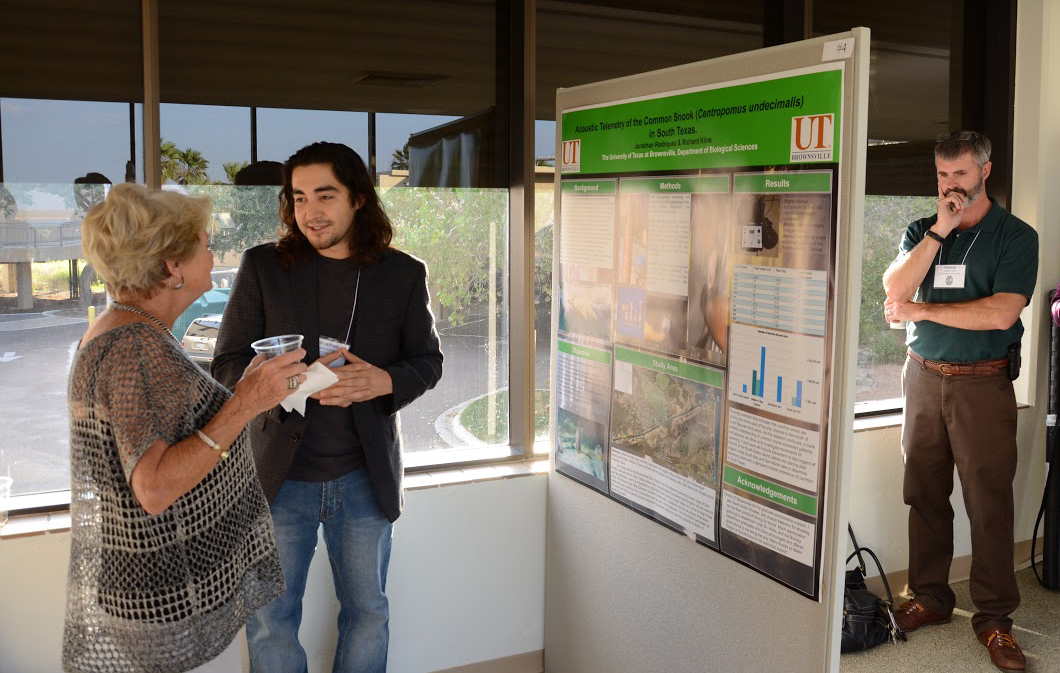 PORT ARANSAS, Texas – On October 30-31, 2014, the University of Texas Marine Science Institute hosted a biennial meeting of the Gulf Estuarine Research Society. Researchers and students traveled from across the Gulf of Mexico to share their discoveries and share their knowledge on the lagoons, bays, estuaries along the Gulf of Mexico. Presentation topics ranged from effects on fauna with the opening of Cedar Pass to the latest and greatest tools and techniques. Keynote presentations were made by, Dr. Michael Osland of the USGS National Wetlands Research Center and Dr. Maggie Walser with The National Academies. The meeting was highlighted with a costume-themed poster session.
PORT ARANSAS, Texas – On October 30-31, 2014, the University of Texas Marine Science Institute hosted a biennial meeting of the Gulf Estuarine Research Society. Researchers and students traveled from across the Gulf of Mexico to share their discoveries and share their knowledge on the lagoons, bays, estuaries along the Gulf of Mexico. Presentation topics ranged from effects on fauna with the opening of Cedar Pass to the latest and greatest tools and techniques. Keynote presentations were made by, Dr. Michael Osland of the USGS National Wetlands Research Center and Dr. Maggie Walser with The National Academies. The meeting was highlighted with a costume-themed poster session.  Congratulations to the following students who received awards for their presentations!
Congratulations to the following students who received awards for their presentations!Posters
1st place – Veronica Aguilar and Audrey Wohlrab (University of Texas Marine Science Institute) “Controls of organic matter quality on nitrogen cycling at the sediment-water interface in coastal systems”
2nd place – Patrick Graham (Texas A&M University-Corpus Christi) “Assessing the habitat value of alternative substrates for oyster reef restoration”
3rd place – Kenneth Hayes (Texas A&M University-Corpus Christi) “Organic matter loading and heterotrophic bacterial abundance in a eutrophic lagoon ecosystem”
Oral Presentations
1st place – Sara Wilson (University of Texas Marine Science Institute) “Four years of seagrass monitoring reveals a dramatic change in seagrass percent cover and species composition in Upper Laguna Madre, Texas”
2nd place – Meredith Evans (University of Texas Marine Science Institute) “Using ramped pyrolysis-gas chromatography-mass spectrometry to evaluate weathering intensity of the oil in Louisiana salt marshes following the Deepwater Horizon oil spill”
3rd place – Laura Hundy (University of Louisiana at Lafayette) “Plant growth and soil shear strength in relation to hydro-edaphic characteristics of restored salt marsh soils”
The Gulf Estuarine Research Society (GERS) is one of 7 regionally based Affiliate Societies of the Coastal and Estuarine Research Federation (CERF). GERS is a not for profit educational organization for people interested in estuarine and coastal issues centering on the Gulf of Mexico. The fundamental goal is to promote research in the Gulf of Mexico. GERS is a very active research society with a membership of scientists, researchers, and students from universities, agencies and research labs along the Gulf coast.









